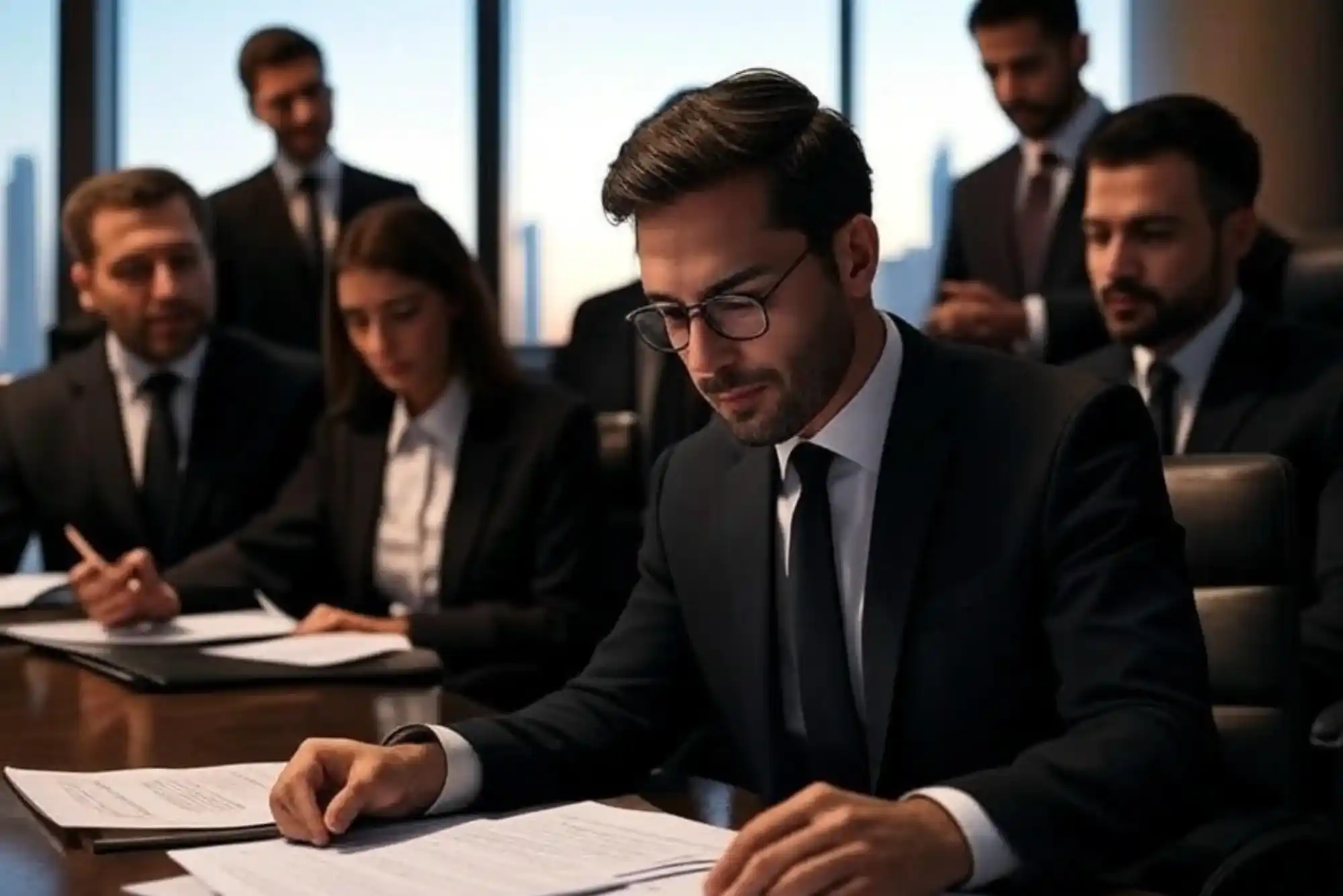In the United Arab Emirates, the legal system upholds a strong emphasis on justice, due process, and the rule of law. Within this framework, criminal investigations are approached with meticulous care and attention to detail. Whether a person faces allegations of theft, fraud, assault, or more serious offenses, the legal process is highly structured and precise. The role of defense counsel is to ensure that every legal right of the accused is protected while presenting a strong, evidence-based defense. This article will explore, in-depth, the various steps criminal lawyers in Dubai take when investigating a case.
Introduction to the Legal Framework
Criminal proceedings in Dubai fall under the umbrella of federal UAE law, governed by the Federal Penal Code and the Criminal Procedure Law. These laws provide the foundation for handling investigations, arrests, interrogations, trials, and appeals. When a person is accused of a crime, it is not only the public prosecution and police who are involved in the investigation. Defense lawyers also play a critical role in examining evidence, gathering facts, and challenging procedural errors. Their investigation is often a parallel but independent process intended to build a robust defense, uncover contradictions, and present mitigating factors.
Understanding the Role of Criminal Defense Investigation
The investigation conducted by defense lawyers is not a substitute for police investigations but rather a complementary process. It is designed to verify facts, test the reliability of evidence, and protect the defendant’s rights. In many cases, the outcome of a trial may hinge on the effectiveness of this legal investigation. Therefore, defense lawyers must adopt a methodical and strategic approach when handling criminal cases.
Initial Client Consultation and Case Review
The first step any defense lawyer takes is a detailed consultation with the client. During this stage, the lawyer collects essential information directly from the accused, including their version of events, any communications or evidence they may possess, and their understanding of the charges. This stage is crucial because it sets the groundwork for all further investigations. Lawyers assess whether there have been any procedural violations during the arrest, detention, or interrogation. If such violations exist, they may form part of the defense strategy.
Understanding the client’s background, occupation, and any previous legal history also helps the legal team to approach the case with clarity and context. It is during this consultation that the lawyer explains the rights of the accused, the nature of the charges, and the possible legal consequences. Based on this assessment, a roadmap for case investigation is developed.
Collecting and Analyzing Case Files
Once the lawyer has a full grasp of the situation from the client’s perspective, the next step is to obtain the official case file from the authorities. This file includes police reports, witness statements, forensic analysis, surveillance footage, and any confessions or admissions made during the investigation.
Lawyers examine these documents meticulously. Every line of the police report is reviewed for inconsistencies, contradictions, or incomplete information. Forensic evidence, if any, is scrutinized to ensure it was collected and processed in compliance with legal procedures. In the UAE, courts take procedural compliance seriously, and any irregularities may result in the exclusion of evidence.
Analyzing the prosecution’s case enables the defense to identify potential weaknesses. If the police report heavily relies on witness statements, for instance, the credibility of those witnesses becomes a critical point of focus.
Interviewing Witnesses and Gathering Testimony
Defense lawyers often identify and interview witnesses who may not have been approached by the police. These witnesses may include co-workers, neighbors, family members, or bystanders who can provide testimony that either supports the defendant’s narrative or challenges the prosecution’s version of events.
Witness interviews are conducted carefully and, in many cases, in the presence of legal professionals who can help ensure the admissibility of such testimony. In situations where a witness is reluctant to speak, lawyers may issue formal legal requests or applications through the court to secure their testimony. Statements are documented, and where necessary, affidavits are prepared to be submitted as part of the legal defense.
Reviewing Surveillance and Digital Evidence
Modern criminal investigations often involve digital evidence, including CCTV footage, mobile phone records, GPS data, and social media activity. Lawyers work closely with digital forensic experts to examine such evidence for authenticity and relevance.
Surveillance footage is reviewed not only for content but for context. Time stamps, angles, and locations are verified. For example, if a suspect is seen entering a building but not exiting, lawyers may request additional footage or evidence that explains the sequence of events more accurately. Similarly, call logs and text messages are examined for inconsistencies or omissions.
If there is a claim that evidence was tampered with or unlawfully obtained, lawyers may file a motion to suppress that evidence under the applicable provisions of the UAE’s Criminal Procedure Law.
Site Visits and Scene Reconstruction
In complex cases, especially those involving violent crimes or property offenses, defense lawyers may visit the crime scene to understand its layout, access points, and environmental conditions. This helps in verifying or challenging claims made by the prosecution.
For example, if a witness states they saw the accused from a certain vantage point, the defense might assess whether it was physically possible to have that view, considering lighting, obstructions, or distance. Reconstructing the scene can also help identify alternate explanations or unknown factors that may not have been considered by law enforcement.
Lawyers sometimes engage the help of private investigators or forensic specialists to provide independent assessments. These assessments can be presented in court as expert testimony, offering a technical or scientific counterpoint to the prosecution’s evidence.
Reviewing Medical and Psychological Reports
In cases involving injury, assault, or mental health considerations, medical records are reviewed in depth. Lawyers may request independent medical evaluations or second opinions to challenge the findings of state-appointed examiners. If the defendant has a history of psychological disorders or cognitive impairments, psychological assessments may form a crucial part of the defense.
Such evaluations must comply with legal standards and are typically conducted by certified professionals. Lawyers present these reports in court to argue for reduced culpability, mitigating circumstances, or alternative sentencing options such as rehabilitation instead of imprisonment.
Filing Legal Motions and Procedural Challenges
During the investigation phase, defense lawyers may file motions to challenge the admissibility of evidence, request further disclosure from the prosecution, or seek dismissal of the charges if legal violations are identified. These legal filings are part of the broader strategy to shape the case before it reaches trial.
If there has been an unlawful search or seizure, for example, the defense can argue that evidence obtained through such means should not be used in court. Similarly, if a confession was obtained under duress or without legal counsel, it may be excluded on constitutional grounds.
This proactive use of procedural law is a hallmark of effective defense work. It places pressure on the prosecution to maintain transparency and follow due process at every stage of the legal proceedings.
Preparing for Trial and Cross-Examination
Once the investigation is complete, lawyers prepare a defense strategy based on the evidence collected. This includes preparing the defendant for trial, formulating questions for cross-examination, and organizing evidence to be presented in court. Lawyers anticipate the prosecution’s line of argument and prepare counterpoints, drawing from the investigative findings.
Cross-examination is a vital tool for testing the credibility of prosecution witnesses. By challenging inconsistencies, highlighting biases, or exposing factual errors, the defense aims to create reasonable doubt in the minds of the judges.
In the UAE, trials are conducted before judges rather than juries, which means that the presentation of legal arguments and evidence must be clear, logically structured, and legally sound.
Ensuring Client Rights and Legal Compliance
Throughout the investigation and trial preparation, lawyers remain vigilant to protect the rights of the accused. This includes ensuring access to a fair hearing, protection against self-incrimination, and the right to communicate with legal counsel.
Criminal lawyers in Dubai are trained to balance investigative work with ethical obligations. Their goal is not merely to acquit a client at all costs but to ensure that justice is served through a lawful and equitable process. Upholding these standards enhances the credibility of the legal system and reinforces public trust in the rule of law.
Conclusion
The investigation process undertaken by defense lawyers in criminal cases is a thorough and multi-faceted effort. From reviewing police records and interviewing witnesses to scrutinizing forensic evidence and filing legal motions, every step is guided by a commitment to justice, legality, and strategic thinking. These efforts play a crucial role in the fair adjudication of criminal charges in Dubai’s courts.
In a legal environment where procedural integrity and evidentiary accuracy are paramount, the work done by criminal lawyers in Dubai stands as a critical safeguard for those facing the weight of the criminal justice system. By undertaking diligent and lawful investigations, they ensure that every defendant is given the opportunity for a fair and just defense.








